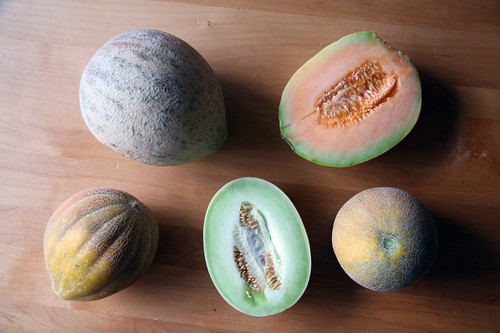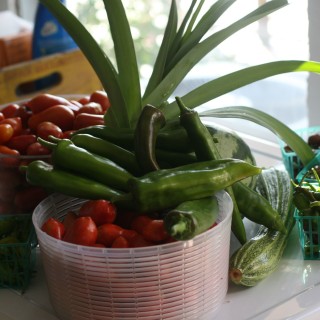
I hope I didn’t scare you yesterday with that doom and gloom about the future of agriculture. I’m sure if I tried I could round up links to a ton more stories of fear, but I like to keep things positive here, so let’s hurry up and talk about how we can improve things, okay?
The challenges of world hunger, soil depletion, and diminishing resources is overwhelming. And many people tend to look for big solutions, such as mass distribution, miracle high-yield crops, mass producing fertilizer. But all of these solutions, really are harmful and create long-term dependency. How to Grow More Vegetables, the Grow Biointensive way of farming, teaches the world to become self sufficient. To nurture the soil, and to view the ecosystem as a whole, so we can continue to farm generation after generation.
The benefits for this Grow Biointensive way of growing are a:
- 67% to 88% reduction in water consumption per unit of production
50+% reduction in the amount of purchased fertilizer required per unit of production
99% reduction in the amount of energy used per unit of production
100+% increase in soil fertility
200% to 400% increase in caloric production per unit of area
100+% increase in income per unit of area.
Fantastic, right? Why hasn’t the world already adopted these practices? Well, they have. This type of farming was done in China as far back as 4000 years ago. The Europeans and Latin Americans adopted it long, long ago. But since the invention of mechanized and chemical agriculture, much of these practices have been destroyed. Ecology Action is working to reteach these methods world wide.
But how does this apply to your garden? What is this book going to do to make your garden better? Well, stick around for tomorrow’s post on what How to Grow More Vegetables will benefit you directly.
As for now, I’ll leave you with this quote:
Up to 6 billion microbial life-forms can live in one 5-gram amount of cured compost, about the size of a quarter. Life makes more life, and we have the opportunity to work together with this powerful force to expand our own vitality and that of this planet.
Read Part One & Part Three.








I know I’ll refer back to all the gardening advice once I actually get a real garden but for the present time I have to exclaim over the photo. I love it!
good afternoon, i want to know if how many kilos or amount of compost be applied on vegetable crops?